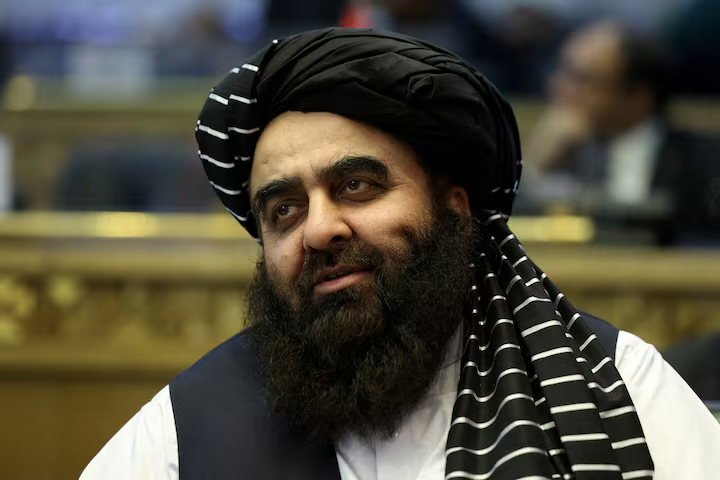KABUL, October 8, 2025 — Afghanistan’s Taliban Foreign Minister Amir Khan Muttaqi departed for New Delhi on Wednesday for what marks the first official visit by a Taliban leader to India since the group regained control of Afghanistan in 2021.
The trip underscores the Taliban administration’s growing efforts to expand diplomatic and economic engagement with regional powers. So far, Russia remains the only nation to officially recognize the Taliban-led government.
According to Afghanistan’s Ministry of Foreign Affairs, Muttaqi is expected to hold high-level talks with Indian Foreign Minister Subrahmanyam Jaishankar and other senior officials. Discussions will cover a range of topics, including political cooperation, trade, consular services, health sector support, and port access.
Historically, India and Afghanistan have maintained friendly relations, though New Delhi closed its embassy in Kabul following the U.S. military withdrawal in 2021 and the Taliban’s return to power. A year later, India opened a limited diplomatic mission to oversee humanitarian and commercial operations.
While India does not officially recognize the Taliban government, it has gradually resumed contact through informal channels and official-level meetings.
The visit was made possible after the U.N. Security Council temporarily lifted a travel ban on Muttaqi to allow diplomatic outreach. The move follows increasing calls for regional dialogue and stability across South and Central Asia.
Earlier this week, Muttaqi attended a regional meeting in Moscow, where officials from India, Pakistan, Iran, China, and Central Asian nations issued a joint statement rejecting the deployment of foreign military bases in the region — widely interpreted as a stance against renewed U.S. military ambitions near Kabul.
The visit to New Delhi signals a strategic diplomatic shift by the Taliban, seeking broader economic cooperation and international legitimacy through regional engagement.






